Nunavut MLA was about to lose hope when rescuers found him on Baffin Island
'I prayed to be found, I prayed and prayed and I yelled 'Amen!' and then I heard a plane'
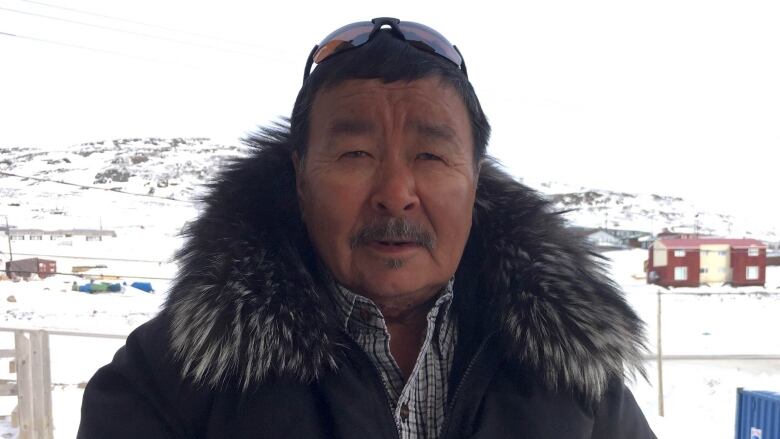
Nunavut MLA Pauloosie Keyootak says he was about to lose hope just before search and rescue teams flew towardhis camp saving him, his son Atamie Qiyuqtaq and nephew Peter Kakkik.
"I prayed to be found.I prayed and prayed and I yelled 'Amen!' and then I heard a plane," said Keyootak in Inuktitut.
"They found me and I couldn't stop crying."
Keyootak, 62, his 16-year-old son, and Kakkik, 47, left Iqaluit by snowmobile last Tuesdayand were expected in Pangnirtung onWednesday on their way to Qikiqtarjuaq. Asearchbegan on Sundayafter the party failed to show up in Pang.
The trio werefound Thursday about 183 kilometres south of Iqaluit,even thoughthey had planned to travelnorth.
Keyootak said bad weather and a faulty GPS systemon a smartphone led them far from their planned route.
'I was terrified'
The party took shelter in a cabin when the snow started to blow. The next day they decided to continue their journey with the aid of GPS on a phone. It took them two days before they realized that the GPS was not functioning.

On the third day, the group stopped moving to conserve the little gas they had for warmth.
"The weather cleared up and I realized how far we were and that we didn't have enough gas to return," said Keyootak.
"This is where I was terrified, when I realized how far south we were."
Temperatures in the area dipped to -30 C this week.
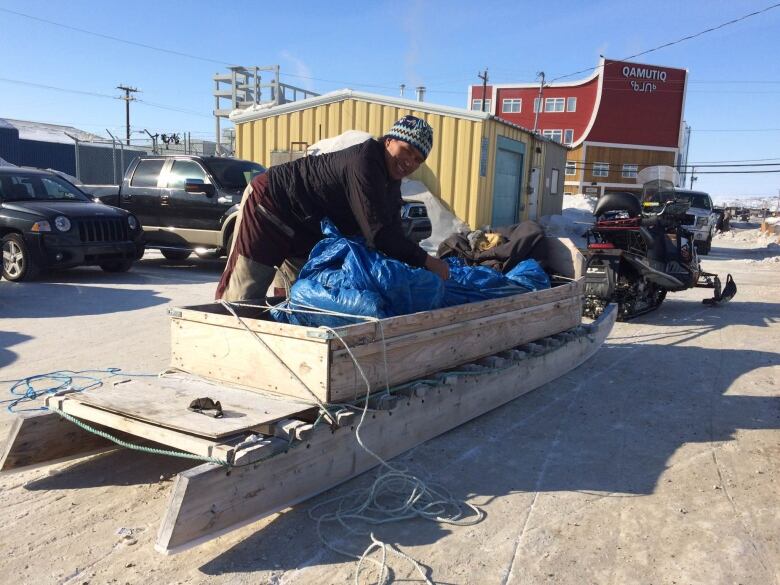
Used a small knife to build an igloo
The three men spenteight days in one area. They were carryingonly enough food for a short journey to Pangnirtung and two small Naphtha fuel cans for their portable stove.
"I also didn't bring a saw and used a little knife to build an igloo," said Keyootak.
The first igloo he built was on a very windy area where they had stopped at first. The next day Keyootak built another iglooin a more stable location with better snow.
"My son and nephew caught a caribouand used the skin to sleep on," said Keyootak. "We had no tents."
The three men shared two sleeping bags and huddled to stay warm at night.
Keyootak said they lived primarilyon the two caribou that they managed to hunt.
'Which one of us would die first?'
They used the containers for their bullets, pieces of their jerry cans, material from their sled and any shrubbery they could find to make a fire to create drinking water.
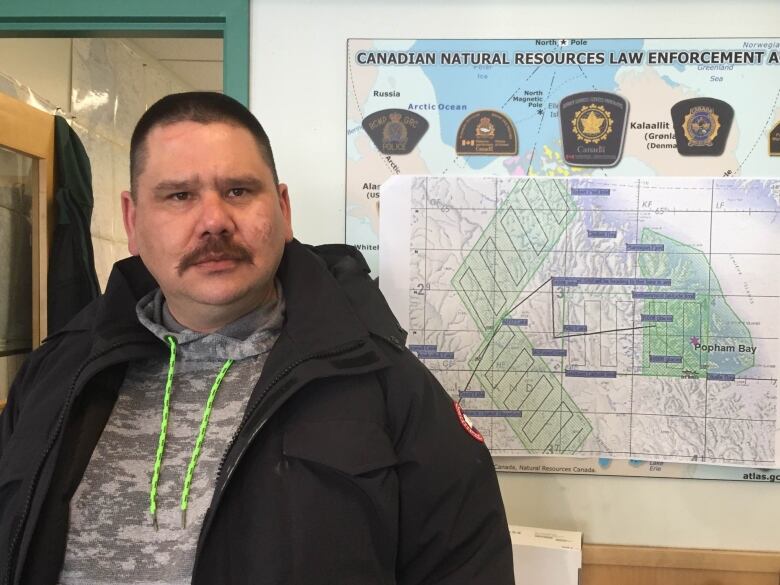
Keyootaksaid his greatest fear was losing his teenage son.
"If he died before me if he died before my eyes which one of us would die first?
"These thoughts were very heavy on me."
Stalked by a wolf
Fighting the freezing cold weather without food and proper shelter was not the men's only problem.
The group was also being stalked by a large male wolf.
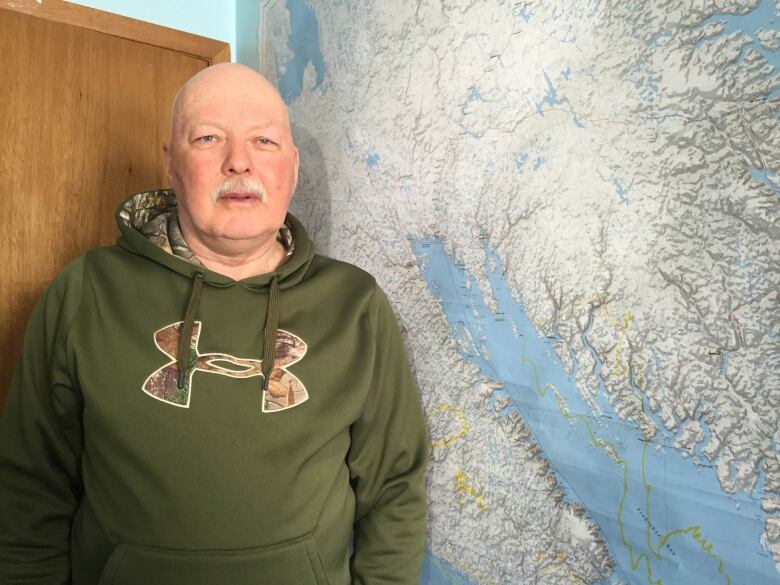
"It was very close. You could hear it howling.It was right on our trail, focused on us."
The group had used all their bullets hunting caribou and had no means of protecting themselves except a small knife.
"I took my nephew's knife and added a wood piece to the end extending the length of the knife."
'It was the last place we had left to search'
Jimmy Noble Jr.was the volunteercoordinator who spearheaded the search. It was his meticulous system for organizing it that is credited for locating the missing group.
"It takes a lot of teamwork and talking with your elders to help pull a search like this off," said Noble.
"Having clear and consistent gridwork and blocking off areas was our key to success."
Glenn Williams was one of the volunteers spotters who helped find the missing group from a Twin Otter.
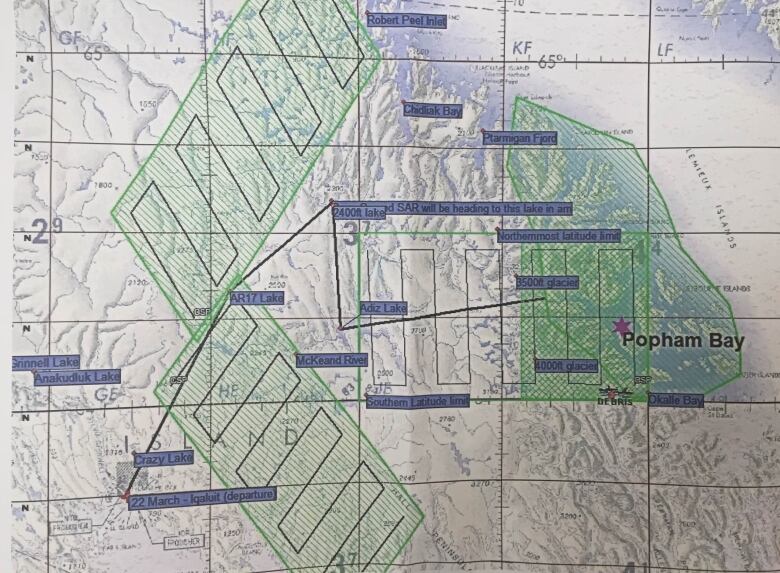
"It was the last place we had left to search," said Williams.
Williams said the tracks, nine days old after two storms, were hard to spot from the air.
"We would see them then we would lose them for one or two kilometres than we'd pick up maybe one ski bar and then we'd pick up another one," said Williams.
Six spotters were on board the plane, scouring the land for any signs of life when someonesaw something.
As the aircraft turned around and turned into the valley, Williamsspotted Keyootak.
"I could see someone standing on top of the hill waving an empty five-gallon in each hand and we found them," said Williams.
'I'm so sorry'
Safe in Iqaluit,Keeyotaksaid he'sgrateful to the many people who helped and prayed for him.
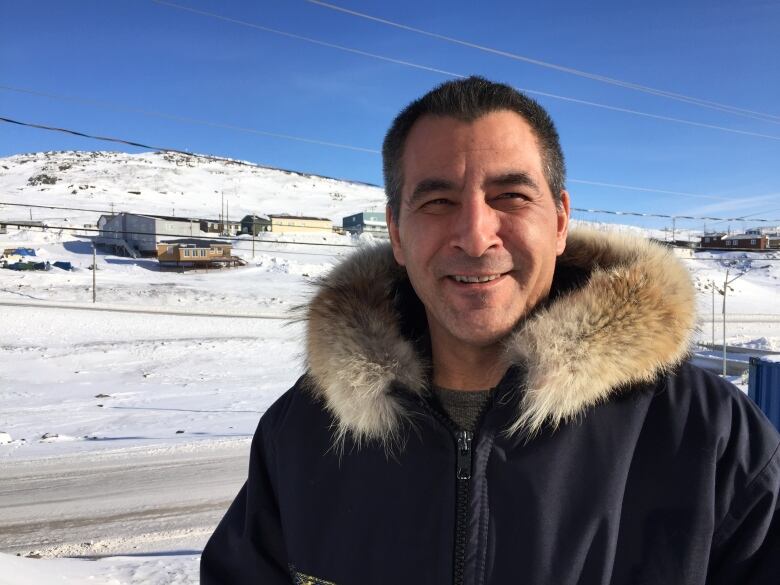
He said he'slearned a very important lesson from this incident.
"You cannot win against Mother Nature."
He also said that anyone that goes on the land should bring along a SPOT device, a satellite phone or a GPS device.
Hunter Tootoo, Nunavut's MP and the federalfisheries minister, greeted Keyootak at the legislature in Iqaluit Friday. He said that it was the MLA's traditional knowledge of the land that helped him survive.
"It just shows the knowledge that Inuit have to survive out there on the land is very important and it surely paid off in this instance."
With files from Michael Salomonie, Madeleine Allakariallak












_(720p).jpg)


 OFFICIAL HD MUSIC VIDEO.jpg)
.jpg)



























































































